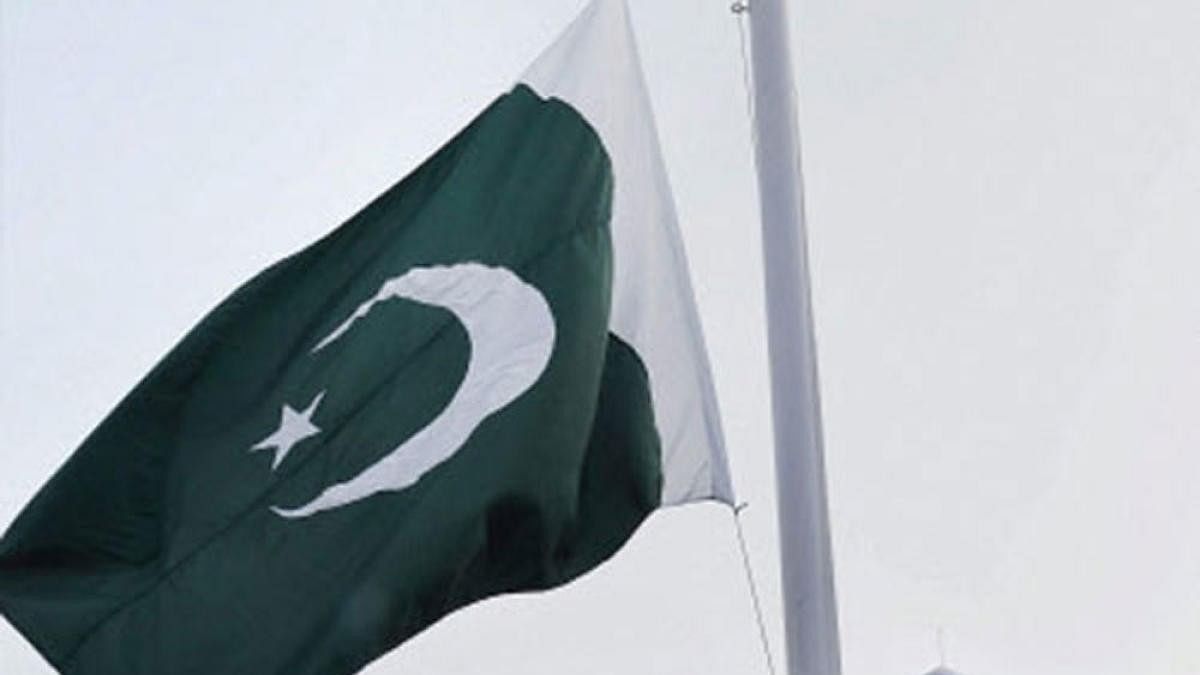
Pakistan flag.
Credit: PTI File Photo
Islamabad: Pakistan's National Assembly on Tuesday passed a bill seeking to bar independent lawmakers from joining a party after a stipulated period, with the jailed former prime minister Imran Khan's party voicing a strong protest against it.
The Election Act Amendment Bill 2024 was moved by ruling Pakistan Muslim League-Nawaz (PML-N) members Bilal Kayani and Zeb Jafar and passed by the National Assembly with a majority vote despite protest by opposition Pakistan Tehreek-e-Insaf (PTI).
The amendment changed Sections 66 and 104 of the Elections Act 2017, restricting independent candidates from joining political parties after a constitutionally and legally defined period.
It states that parties failing to submit a list of reserved seats within the specified period will not be eligible for those seats.
It further stipulates that candidates who do not submit an affidavit of party affiliation to the returning officer will be considered independent, and their declaration of party affiliation after elections will not be recognised.
When the bill was taken up for voting, the opposition members stood on their seats and started protesting and sloganeering. They came in front of the speaker’s dais, tore copies of the bill, and raised slogans “Bill Rejected” and “Attack on Judiciary and Democracy Rejected” and decried the government.
PTI’s Ali Muhammad Khan proposed an amendment to the Election Act, which was rejected by the house when Law Minister Azam Nazeer Tarar opposed it.
Later, addressing the House, Ali Muhammad termed the amendment to the Election Act unconstitutional and questioned how the party could be deprived of its rights given by the Supreme Court.
"The Election Act Amendment Bill is a politically motivated attempt to deprive the PTI of reserved seats," he added.
Ali Muhammad said the PTI would move the Supreme Court against the legislation, which, he said, would reject it because this bill is not legislation but a manifestation of the fascist approach of a political party.
He added that the Parliament was used to attack the Supreme Court through this law.
Law Minister Tarar said 81 members took oath as members of the Sunni Ittehad Council (SIC) and now are saying they are members of another party.
The minister said the purpose of the amendment is to bring clarity to the election law.
The amendment to the Elections Act 2017 will be enforced retroactively, clearly showing that the aim was to target the 41 independent lawmakers who could join the PTI after the Supreme Court verdict of July 12, which recognised that the PTI was a party and independents could join it.
The court also declared that 39 members who had shown affiliation with the PTI while filing nomination for elections were its members, while another 41 lawmakers who were elected with the party's support may join it after filing an affidavit.
The Election Commission of Pakistan already issued a notification recognising the 39 lawmakers as members of the PTI, while the fate of 41 others is still pending.
After the Supreme Court verdict, the PTI was expected to become the largest party in the Parliament, while the ruling coalition was deprived of its two-thirds majority as Khan's party also got a share in the reserved seats.
The new law would stop the 41 independent candidates from joining the PTI as they already joined the SIC after the election.
After the elections, the PTI asked its supported independents to join the SIC to get a share in the reserved seats allotted to the party based on strength in the Parliament.
However, the SIC bid to get reserved seats failed, and its petition in the top court led to the decision that independents could join the PTI.
The proposed amendment also forbade allotting reserved seats to a party which had not submitted the list of candidates for these seats before elections.
The apex court's judgment opened doors for the PTI to apply for reserved seats even without submitting the list before the poll.
Khan’s PTI party could not contest the February 8 elections as the ECP rejected its intra-party elections and deprived it of the bat symbol for contesting the elections as a party.
So its candidates, who had won independently but with the support of PTI, were asked by the PTI leadership to join a SIC to form a parliamentary party to claim reserved seats.